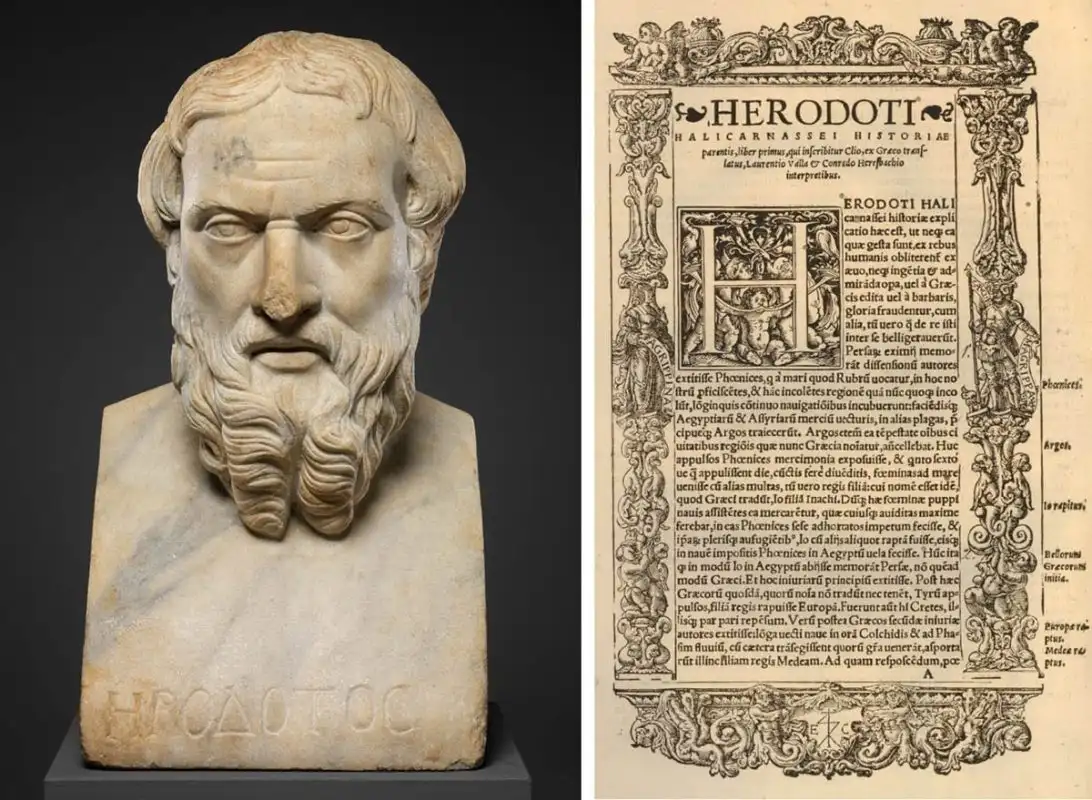
Herodotus, a renowned writer from Ancient Greece during the 5th Century BC, embarked on a monumental project in ‘The Histories’. This literary work aimed to document actual historical events, such as the lives of monarchs, significant battles, and geographical landscapes. It also compiled fascinating stories of giant gold-digging ants, a raging king who commanded the sea to be whipped 300 times, and a dolphin that heroically saved a renowned poet from drowning. Although some of the details in Herodotus's text may not be entirely accurate, ‘The Histories’ revolutionised the recording of the past and earned Herodotus the title "father of history", as hailed by the Roman orator and writer Marcus Tullius Cicero.
Getting to the root of the problem
Historical recordings before Herodotus's seminal work were often mere lists of events without any explanation or attempt to understand the underlying causes, with everything attributed to the will of the gods. However, Herodotus sought a more rational and comprehensive understanding of the past. He pioneered a novel approach by examining events from multiple perspectives to understand the reasons that led to them.
The Histories
Herodotus, a Greek born in the Persian-ruled city of Halicarnassus, grew up during a tumultuous period of wars between the Greeks and Persians. Fascinated by the subject, he embarked on a mission to learn all he could about it. ‘The Histories’ opens with the line "Herodotus of Halicarnassus here displays his inquires". His inquiry into the Persian Wars is one of the most significant and well-known aspects of this historical work.
In ‘The Histories’, Herodotus explored the political and cultural differences between the Greeks and Persians and provided valuable insights into the mindset and motivations of both sides. He recorded the internal debates of the Persian courts alongside tales of Egyptian flying snakes. This approach to research was called "autopsy", meaning seeing for oneself, and it allowed Herodotus to become the first writer to examine the past based on the different types of evidence he collected. He evaluated eyewitness accounts, rumours, and traditions before using his reasoning to draw conclusions about what had occurred.
As his influence and power expanded, Herodotus's writing and the idea of history spread across the Mediterranean. As the first legitimate historian, Herodotus was not without flaws and faced criticism, both during and after his lifetime, from those who doubted the accuracy of his stories. However, contemporary evidence has shed light on some of his seemingly incredible claims. For example, there is a species of marmot in The Himalayas that spreads gold dust while digging. The ancient Persian word for marmot closely resembled the word for ant, so the historian may have fallen victim to a translation error. All in all, Herodotus fared quite well for someone who was writing in an entirely new style.
Picture Credit : Google




